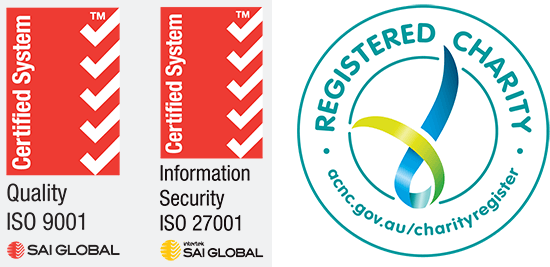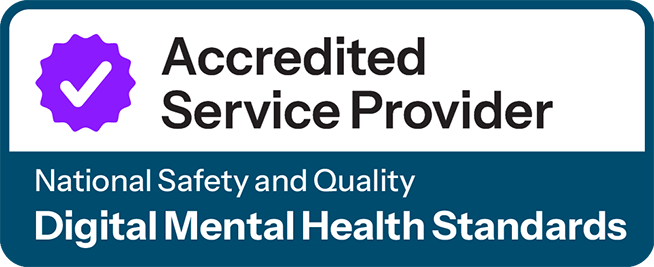
Palliative care is a relatively common GP presentation.
According to Australian Institute of Health and Welfare data, this resulted, in 2022–23, in 13,900 people receiving MBS-subsidised palliative medicine attendance and case conference services provided by palliative medicine physicians or specialists.
This was similar to presentations for Type 1 diabetes and rheumatoid arthritis. The majority – 90 per cent – of palliative care encounters were with people over 65.
According to the World Health Organisation, “palliative care improves the quality of life of patients and that of their families who are facing challenges associated with life-threatening illness, whether physical, psychological, social or spiritual.
“The quality of life of caregivers improves as well.”
Palliative care is not just for cancer
Patients, caregivers and health providers often share the misconception that palliative care is only suitable for people with cancer. All patients with a life-limiting illness can benefit from the holistic care provided by a palliative care service.
Common conditions suitable to receive the expert services of a community palliative care provider include:
- cancer
- heart disease
- dementia
- neurological diseases
- respiratory disease
- kidney and liver diseases.
Community palliative care referral criteria
Most GP referrals to palliative care will be to community teams. These see patients with a diagnosed advanced life-limiting medical condition requiring care input for complex symptom management.
Consideration of timely referral to community teams is important. Suitable patients will not be requiring an emergency or acute palliative care assessment at that time. However, they may require access to acute services at other phases of their illness.
Referral criteria to community palliative care teams include:
- phase of care – unstable, deteriorating, or terminal
- frequent presentations to acute care
- complex symptoms
- complex care needs
- assistance with decision-making regarding end-of-life choices
- frequent inpatient palliative care admissions
- unmet psychosocial needs
- anticipated loss and grief issues
- anticipated poor bereavement outcome.
There are also acute palliative care teams with inpatient services across the region.
What services do community palliative care teams provide?
Community palliative care teams provide a wide range of services. These include:
- access to after-hours support
- regular nursing visits for patients
- troubleshooting client and carer concerns
- pain and symptom relief and anticipatory end-of-life medication support
- equipment to aid care at home
- social work input for sensitive or complex issues
- allied health including music therapy or massage therapy
- respite and support.
The majority of community palliative care services will also provide bereavement support for family and carers. This can include individual or family counselling, information and training sessions, remembrance services and support groups. Some services offer bereavement support up to two years after a person has passed.
Community palliative care services can arrange direct admission to an acute palliative care unit. This reduces stress for client or carer but also assists in reducing the burden to the health care system by avoiding the need to present to an emergency department.
How do I find my local community palliative care team?
Community palliative care teams in Victoria are location-based. Based on your patient’s postcode you can use this tool to find the contact details for the nearest team.
What can I do in everyday practice to make things easier when palliative care is required?
Ideally all patients entering palliative care should have an advanced care plan already in place. These give directions to care teams based on the wishes and values of the person receiving end-of-life care. In Victoria, they are legally binding.
If the patient does not already have an advanced care directive in place, the palliative care team will assist in putting one in place.
An advanced care directive can be done at any time, and ideally when the patient is medically stable.
Additionally, the following settings may provide an ideal opportunity to initiate discussions about advance care planning:
- at a 75+ health check
- if the answer to the ‘surprise’ question (‘would I be surprised if this patient died in the next 6–12 months?’) is no.
The SPICT tool helps identify people with deteriorating health and increasing care needs who may benefit from care planning.
A patient may consider appointing a substitute medical treatment decision-maker or support person at the same time.
Advanced Care Planning Australia has more information on the subject. On the Victoria page there are templates for all situations including when someone already has an sufficient capacity to write their own plan.
Resources for appointing a substitute medical treatment decision-maker can be found here (.pdf).
These and many other resources can be found on NWMPHN’s public-facing palliative care website, Precious Time.
NWMPHN palliative care support options and programs
For any Palliative Care support enquires please contact Jack Williams (acting Lead – Palliative Care and Older Adults) – Jack.Williams@nwmphn.org.au or (03) 9347 1188.
Spotlight: Palliative Care for General Practice
NWMPHN will be running a “Palliative Care for General Practice Spotlight” between February and April 2025 and focuses on building general practice capability in managing palliative care patients. The spotlight has two activity streams that providers can select: palliative care and advanced care planning. It is open to general practitioners and practice teams, and will be CPD-accredited (total hours to be confirmed). The spotlight will include points on the following activities: educational activities, reviewing performance and measuring outcomes.
The first phase of this activity involved an online education session, titled ‘Practical palliative care for general practices: working together for better outcomes’. Click below to watch a recording.
Palliative Care education for general practice
North Western Melbourne Primary Health Network (NWMPHN) and Eastern Melbourne Primary Health Network (EMPHN) have partnered with the North and West Metropolitan Region Palliative Care Consortium to offer general practices the opportunity to connect with local community based palliative care providers.
General practices can request a visit from a community palliative care team member to provide information, education, and support, and help improve understanding and access to community palliative care services. Apply here.
NWMPHN Resources
- HealthPathways Melbourne is a single website that provides clinicians access to a comprehensive collection of locally relevant clinical information and guidelines that are designed to support general practitioners (GPs) and other healthcare providers in delivering consistent and evidence-based care to their patients. It includes medication information, referral information and further resources which can be used at the point of care. There are over 40 Palliative Care HealthPathways pages which you can access at melbourne.healthpathways.org.au
- Following consultations with community members and subject matter experts, NWMPHN created a stand-alone website to provide information and support for people with life-limiting conditions, as well as the people who love and support them. The website is called Precious Time.





